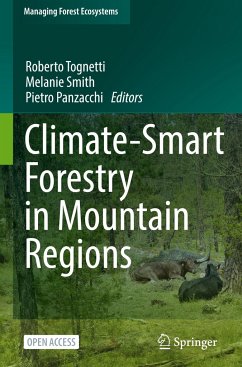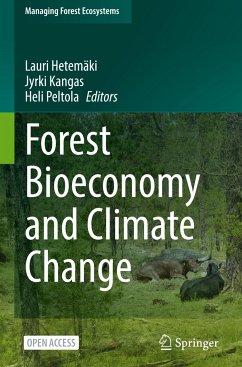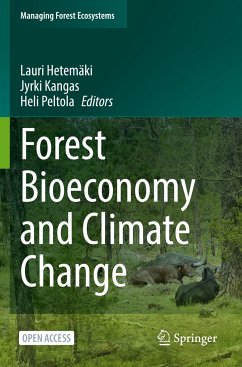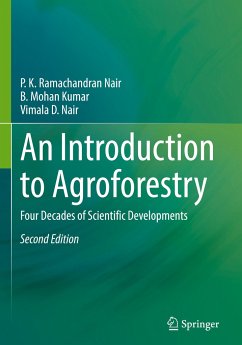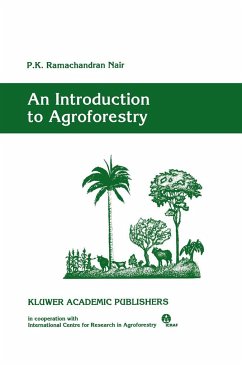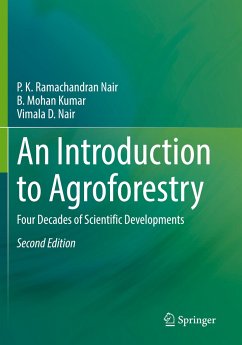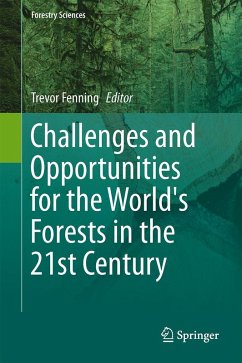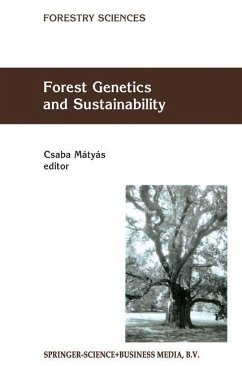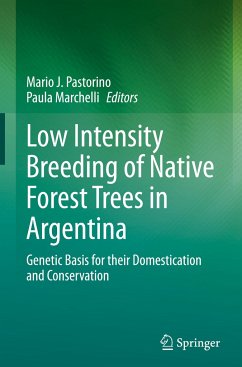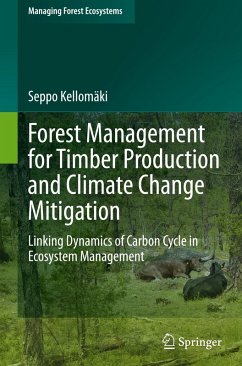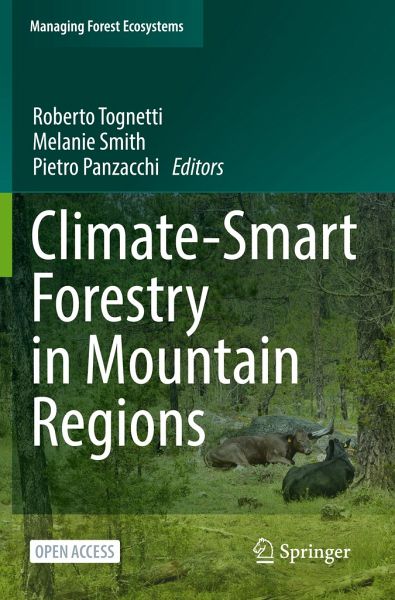
Climate-Smart Forestry in Mountain Regions
Versandkostenfrei!
Versandfertig in 6-10 Tagen
32,99 €
inkl. MwSt.

PAYBACK Punkte
16 °P sammeln!
This open access book offers a cross-sectoral reference for both managers and scientists interested in climate-smart forestry, focusing on mountain regions. It provides a comprehensive analysis on forest issues, facilitating the implementation of climate objectives. This book includes structured summaries of each chapter.Funded by the EU's Horizon 2020 programme, CLIMO has brought together scientists and experts in continental and regional focus assessments through a cross-sectoral approach, facilitating the implementation of climate objectives. CLIMO has provided scientific analysis on issues...
This open access book offers a cross-sectoral reference for both managers and scientists interested in climate-smart forestry, focusing on mountain regions. It provides a comprehensive analysis on forest issues, facilitating the implementation of climate objectives. This book includes structured summaries of each chapter.
Funded by the EU's Horizon 2020 programme, CLIMO has brought together scientists and experts in continental and regional focus assessments through a cross-sectoral approach, facilitating the implementation of climate objectives. CLIMO has provided scientific analysis on issues including criteria and indicators, growth dynamics, management prescriptions, long-term perspectives, monitoring technologies, economic impacts, and governance tools.
Funded by the EU's Horizon 2020 programme, CLIMO has brought together scientists and experts in continental and regional focus assessments through a cross-sectoral approach, facilitating the implementation of climate objectives. CLIMO has provided scientific analysis on issues including criteria and indicators, growth dynamics, management prescriptions, long-term perspectives, monitoring technologies, economic impacts, and governance tools.



